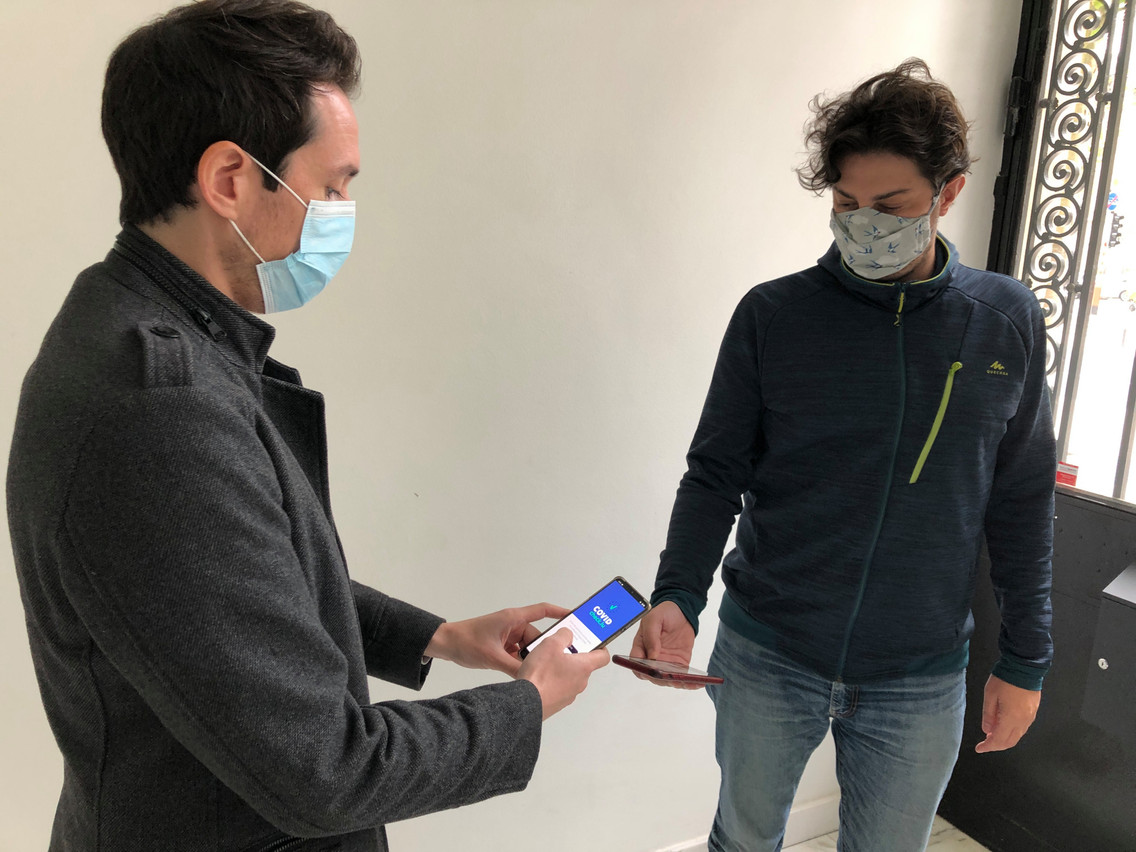The new law allowing CovidCheck to be introduced in companies The law does not specify the possible sanctions for an employee who refuses to undergo the CovidCheck, for example because he or she does not want to be vaccinated and does not want to pay for regular tests (those who cannot be vaccinated for certain medical reasons are entitled to reimbursement for tests) .
Paperjam spoke with three lawyers, all experts in employment law. Their opinions differ, but they agree on one point, namely the legal uncertainty surrounding this law.
The discrimination argument
For Christian Bock (from the law firm Frank, Cohrs, Bock law firm ), “if the head of the company decides to set up CovidCheck, it is up to him to pay for the tests. Just as an employer whose employee has to wear safety shoes must provide them.” The tests should also “be carried out during working time,” he says. The situation poses another problem for the lawyer: “If the employer has to pay for the employee's tests, he knows who is vaccinated or not” in his company, whereas the employer cannot normally have access to such health data.
If an employer decides to ban an employee who refuses to comply with CovidCheck, this could fall under “discrimination on the basis of health status,” he says. “There is the possibility of legal action. If the constitutional court finds that the law goes against the constitution, the law and the sanction could fall and the employer would risk paying compensation for unfair dismissal.”
One wonders whether the employer is not obliged to provide the tests.
In order to change an employee's conditions, for example to allow remote working, the employer must comply with Article 121-7 of the Labour Code. “If the transfer is to the employee's disadvantage, he or she will have the opportunity to contest it.” The option of putting the employee on sick leave is not possible either, as a medical certificate is required. Unless, of course, they test positive for covid-19.
Decisions on whether or not to dismiss an employee who refuses CovidCheck remain difficult to predict. “I can't say whether the judges will go one way or the other, there is no case law. In my opinion, I would strongly advise an employer against doing so.”
For the record, Christian Bock is the lawyer for Dr Benoît Ochs, a general practitioner who has expressed controversial positions on the coronavirus and the vaccine against the epidemic. The physician, who practices in Gonderange, was condemned on 14 July by the disciplinary board of the Medical College, after breaching several articles of its code of ethics. He has since appealed.
Nadia Chouhad believes that an employee's refusal of the CovidCheck can “constitute misconduct justifying dismissal.” Since this is a failure to comply with an obligation required at the workplace, “he/she is in breach of his/her obligations,” Chouhad explains. This could also justify sending an employee home, from where they will not be paid. But will it be enough of a misconduct to justify dismissal? The judge will decide. “On the other hand, one may wonder whether the employer is not obliged to provide tests, since it is a choice of the company to put itself under CovidCheck and it has the obligation to ensure the health and safety of its employees.” For employees in the hospitality and catering sector (or in the care sector), the obligation is legal. However, the lawyer predicts that the courts will tend to go along with this law, which the government uses to encourage vaccination.
If it proves its good faith, the employer can take disciplinary measures.
According to Guy Castenaro, “if the employee, for one reason or another, does not want” to undergo the compulsory CovidCheck, “the employer has a general obligation to perform the contract binding him to his employee in good faith.” This means that he must “try to find an alternative, a way to let him work without going to the company's premises.” If this is impossible, “if he proves his good faith, he can take disciplinary measures,” the lawyer adds. That is, a warning, which can lead to dismissal. Here, “each case is different depending on the employee's seniority and background, as with any dismissal.”
Does proving good faith mean offering to pay for the tests? No, according to Castegnaro. “Seeing as the test can also be used for private purposes, it is not a professional expense as such. The employer is entitled not to pay for the test. If he does, “tax and social security issues that apply to benefits in kind will arise,” he adds. Good faith must also “come from both sides,” says Castegnaro.
However, being able to apply CovidCheck in companies still does not give employers the right to ask employees whether or not they have been vaccinated, for example to avoid checking the QR code of those who have been vaccinated every morning. He will therefore have to limit himself to the green or red logo of the CovidCheck application, which indicates whether the person is compliant- that is, vaccinated, tested negative or recovered from covid-19.
This story was first published in French on . It has been translated and edited for Delano.

